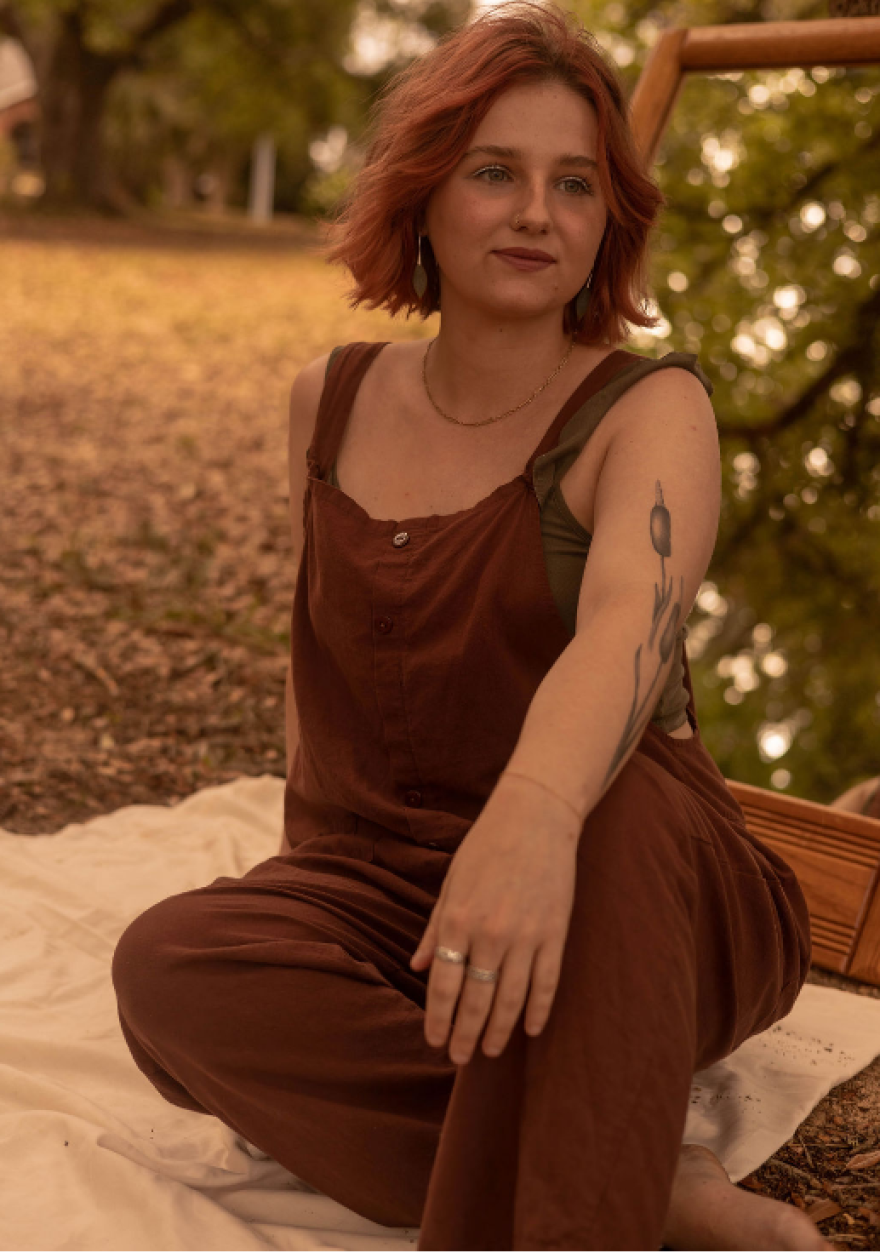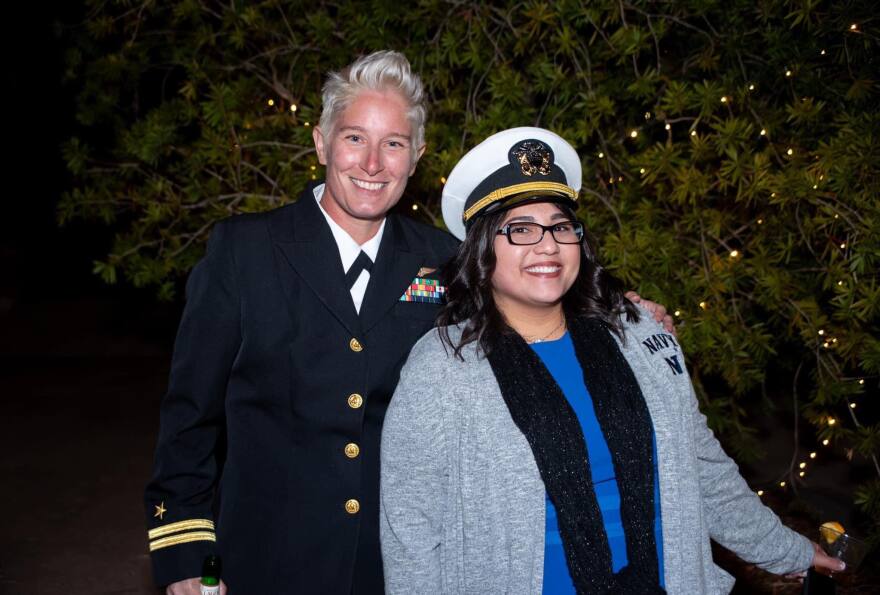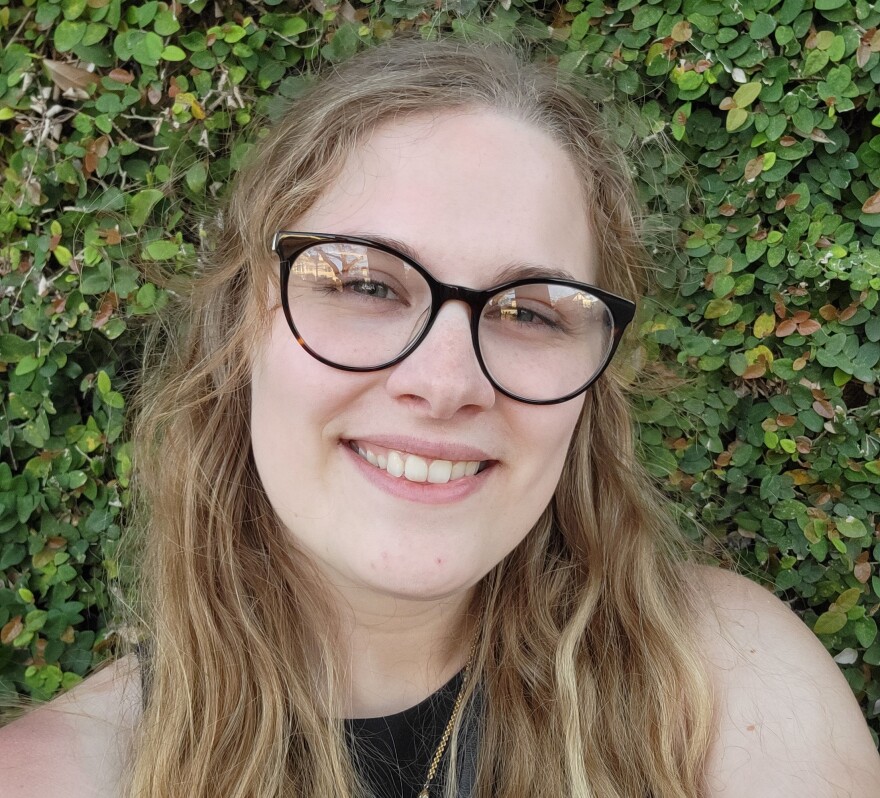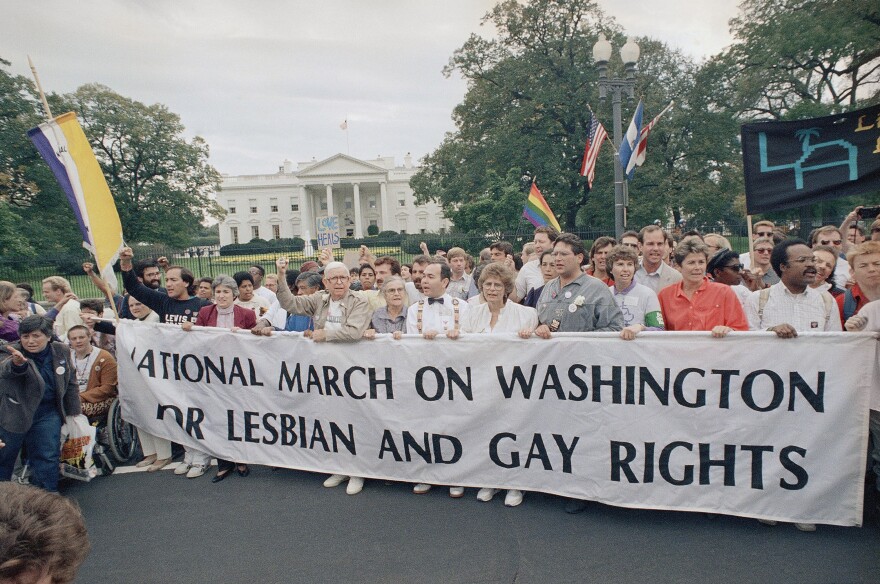For Coming Out Day, which is celebrated on Oct. 11, we again asked locals to share their coming out stories.
When the first Coming Out Day was organized 35 years ago, it was at the height of the AIDS crisis and LGBT people were fighting for basic human rights. Some were literally fighting for their lives.
Support Local Stories. Donate Here.
In 2023, Oct. 11 has a more mainstream following but the origins of the day are still evident as the LGBTQ+ community pushes back against anti-LGBTQ bills in Florida and across the country.
Coming Out Day is also a celebration of community and individuality. Here, five locals share their experiences.
For LGBTQ resources check out the Coming Out Handbook from The Trevor Project.
Not coming out, ‘coming into’

My “coming out” was more of a coming into — I was 22, and finally let out the breath I’d held most of my life. I wanted to live unapologetically — without having to do any more emotional labor of justifying my life decisions and “personality” changes (a.k.a. being myself) for someone else to accept me. I’d found Queer community, Queer love, and decided that whoever wanted to be close to me would see my light come back on and know that I am living in truth. I questioned that at the time but now years later — and after “coming out” over and over again every day as a hairstylist — my understanding of “coming out” means to live in your truth every day despite the stereotypical norms without justification. Being out allowed me to examine every belief I’d ever held, come into my self-worth, and decide to only accept unconditional love as the basis of my reality. Now I get to hold space for other people on their journey, and I know fully that the best (only) thing to say if someone comes out to you is “Thank you for letting me in.”
-Kendall Whitley
‘The loving reactions were best’
Coming out as trans nine years ago, most people I encountered had never heard the word "transgender.” Being not just the first trans person people met, but the first to tell them gender is different from what they were taught meant witnessing all kinds of real-time reactions. Usually, it was just confusion. It stung when people dismissed it as ridiculous, impossible, or delusion. But the discomfort of people I loved was visceral. People I love have reacted violently, treated me with disgust, prayed for my sanity, and simply refused to believe that it's not a sin, even eight years later. The loving reactions were the best. "We don't understand but we love you,” "I'll try to learn about it,” "What does that mean for you?" and even "Oh! Rad!" have made my heart smile. When I came out to my gay uncles, they had me visit an LGBT community center. I honestly doubt I'd have made it through teenagehood without the loving connections, sense of home, the teaching of self-advocacy, and a place to be free. It inspired me to open an LGBT-friendly community center myself. It's in the fundraising stages, and I'm so excited to meet the kids who will go there. I can't wait for them to experience a place of open-heartedness and the same loving kindness that I did.
-Dean Alder
A ‘surprise’ kind of love

In 2014, I found myself at a girl’s night out at a now-closed establishment called Emerald City. To my surprise, I met a charming individual who was in the Navy at the time and had a great personality. At this moment I’m my life, I didn’t want to get involved in anything serious. I was coming out of a prior marriage and back in Pensacola with a new job. I was not intimidated by their gender, as I have always had friends in the LGBTQ+ community and any negative opinions around me were based in fear and religious interpretations. If I were to label my sexuality, I would say I’m “Pansexual” which means I am attracted to people for who they are, not their gender. In the moments of getting to know my now spouse, Kate, it never crossed my mind that we didn’t have the right to life, liberty, and the pursuit of happiness. Being raised in a military, Christian, conservative household gave me pause in some ways — but in more ways, I found myself clinging to freedom, my constitutional rights, and confidence in myself. As far as friends and family reacting to my new love interest, I didn’t have an overwhelming response. I knew the opinions of some family members, but people who know me aren’t surprised by my desire to carve out my own path and not fixate on the approval of others. On the other hand, Kate and I were overwhelmed with kindness from their military squadron, especially the spouses club, which surprised me the most, because I wasn’t a spouse, yet! Furthermore, I feel fortunate to have met my spouse after “Don’t Ask, Don’t Tell” and grateful for the community the military helped build for us. In the grand scheme of things, I’m not a fan of labeling others. I take pride in my privacy and minding my own business, but more importantly, I take pride in bettering my community and loving my neighbors.
-Carollyn Taylor
‘The truest version of me’
Coming out for me was a gradual process over the span of half my life. When I was a teen, I knew I was attracted to folks who weren’t men, but I thought “I could never act on it,” then I was able to act on it, but I thought “I could never emotionally commit.”
When the pandemic hit, I realized I wasn’t living my truth out of fear so I removed men from the equation for a bit and purposefully dove into dating women and non-binary people. In the process, I discovered the truest version of “me” I’ve ever been and it only took until I was 30!
Being out in a moment when basic rights are being removed left and right is scary. I have had uncomfortable conflicts with community members who have compared queer folks to the KKK and my own family member defended the beliefs of an anti-gay protester over supporting me. But now that I am out, I plan to fight like hell never to step back into the shadows. I want this freedom for every queer person in the South.
-Sydney Robinson
‘We are not broken’

Finding out about asexuality was a relief to me in high school. It was validating to know that I wasn’t falling behind or broken — some people just do not experience life with sexual attraction as a part of it.
When I came out to my friends they were confused and supportive but believed me. That meant a lot to me, and as time goes on it means even more. When I came out to my family, none of them actually believed in asexuality. I was just a late bloomer, or had to find the right person, or was too focused on my career path. At the extreme, my asexuality was a mental disorder that needed healing so I could be back to “normal.”
That lack of belief hurt a lot, and feeds into the idea that everyone experiences sexual attraction in the same way. That is not true, and it’s not true for more than just asexual people. We are not broken for not experiencing this one aspect of life, and we are just as whole as anyone else. Human interaction and relationships are not limited to sexual ones, and platonic experiences can be just as powerful.
-Kellie Coatney


